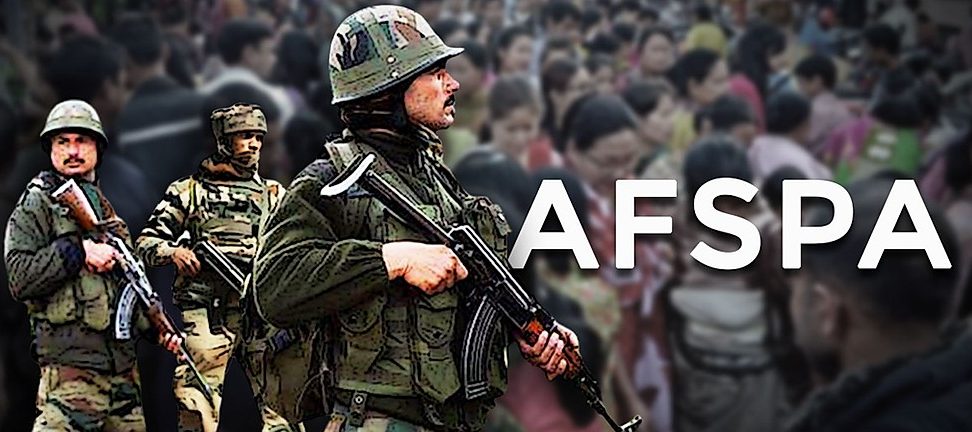Armed Forces (Special Powers) Act (AFSPA)

- 27 Mar 2024
Why is it in the News?
Union Home Minister Amit Shah has said the Jammu and Kashmir Assembly elections will be held before September and that the Centre will consider revoking the Armed Forces (Special Powers) Act there.
What is AFSPA?
- The AFSPA empowers the armed forces to uphold law and order in “disturbed areas.”
- They have the right to prevent a gathering of five or more people in a given location, use force, or even open fire after providing a sufficient warning if they believe someone is breaking the law.
- Armed forces are also permitted to enter and search any location if they suspect illegal activity.
- According to the AFSPA Act, the Army also has the authority to detain someone without a warrant, seize weapons and ammunition, and offer protection to someone acting in good faith.
Salient features of the AFSPA Act:
- The Central Government or the Governor of a State has the right to declare all or a part of any state to be a disturbed region if they believe it is necessary to stop the terrorist activity or any other activity that could jeopardize India’s sovereignty or be disrespectful to the national anthem, flag, or constitution.
- According to Section 3 of the AFSPA, the Central Government may send out armed forces to support the civilian authorities if the governor of a state publishes a formal announcement in the Gazette of India.
- According to the Disturbed Areas Act of 1976, a territory must maintain the status quo for a minimum of three months after being designated “disturbed.”
- Section (4) of the AFSPA grants army officers specific authority to shoot the only requirement is that the officer must sound the alarm before firing.
- Security forces have the authority to search without permission and arrest anyone without a warrant.
- After being taken into custody, a person must be delivered to the closest police station as soon as possible.
- The Central Government must first provide its consent before prosecuting an on-duty officer for alleged human rights violations.
What are the “Disturbed areas” under the AFSPA Act?
- The state governor, the administrator of the union territory, or the central government may declare a region as a “disturbed area” by publishing a notice in the official gazette, the entire territory or an order to implement it may be declared disturbed.
- It is up to the state governments to decide whether or not to implement the Act.
- However, the governor or the Center may disregard their judgment under Section (3) of the Act.
- The state governor was the only person with the authority to confer AFSPA when the act came into force in 1958.
- The 1978 amendment granted the central government this authority.
List of states that implement the AFSPA Act:
- Four states and one union territory currently have AFPSA activities, while 12 districts are still partially subject to the act, and 31 districts have fully implemented the law.
The AFSPA states include:
-
- Jammu & Kashmir
- Nagaland
- Assam
- Arunachal Pradesh
- Manipur
